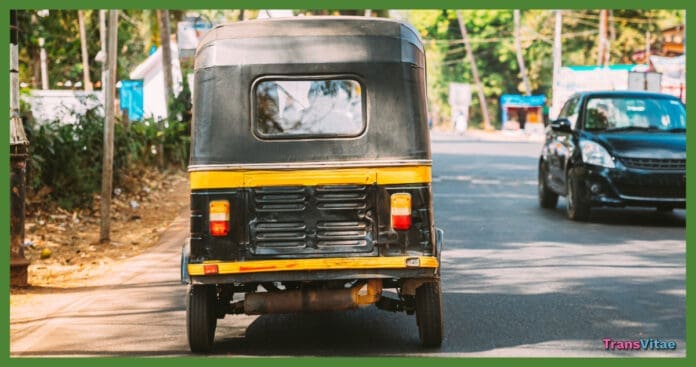When an Indian rickshaw driver refused to give her a ride, one transgender woman didn’t just walk away; she drove straight into her future.
Instead of letting the rejection break her, she used it as fuel. That one moment of everyday transphobia sparked an entrepreneurial journey that’s now putting food on her table and dignity back in her hands. She bought an auto-rickshaw, started her own business, and became her own boss, because if the world won’t make room for you, you make your own damn lane.
And she’s not alone.
Across India, more and more trans women are doing exactly that: taking the very systems that tried to keep them out and flipping them into platforms for empowerment.
In Bengaluru, 38-year-old Preethi used to rely on begging to survive. Now, thanks to an NGO that donated an electric rickshaw and helped with training, licensing, and registration, she earns up to ₹2,000 (around $24 USD) a day driving for herself. No boss. No gatekeepers. Just her, her ride, and her freedom.
In the coastal town of Udupi, 37-year-old Kaveri Mary D’Souza faced health issues, a global pandemic, and the kind of judgment that would break most people. But today, she’s one of the first trans auto drivers in Karnataka, still standing, still driving, still proving people wrong.
And in Mumbai, 49-year-old Kareena Aade became the first trans woman to receive a pink electric rickshaw through a corporate social responsibility initiative. Her passengers? Supportive. Her fellow drivers? Respectful. Her message? Clear: trans women belong wherever the hell we want to be.
Why This Hits Different
For readers in the U.S. and beyond, here’s why this story should matter to you:
In India, many trans people are systematically shut out of jobs, healthcare, housing, and yes, even something as basic as a ride across town. So when one woman turns a moment of rejection into a thriving business, it’s not just inspiring. It’s revolutionary.
This isn’t about “making the best of a bad situation.” This is about trans people refusing to be erased. Refusing to be sidelined. Refusing to wait for permission.
This is what resilience looks like. This is what gender euphoria on wheels looks like.
The Bigger Picture
This movement toward self-driven, trans-led mobility, literally and figuratively, is part of a wider trend. Around the world, trans people are building our own futures: running clinics, launching apps, opening bookstores, and now, driving rickshaws. And we’re not asking for charity. We’re demanding access, equity, and the right to thrive.
Because sometimes, the best revenge isn’t just living well; it’s living visibly, unapologetically, and on your own terms.
The Bottom Line
If you’re reading this in the West, take note:
- Access to transportation isn’t just about convenience; it’s about survival.
- Investing in trans-led initiatives changes lives. Period.
- When given the opportunity, trans people don’t just succeed, we innovate.
From the streets of Mangaluru to cities across the globe, one thing’s clear: when trans women drive the narrative, we all move forward.
She wasn’t just denied a ride. She became the driver of her own destiny.


